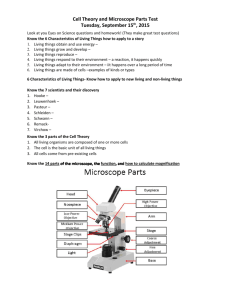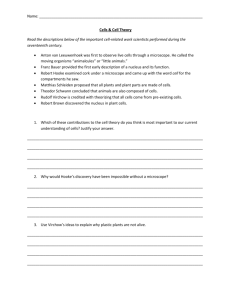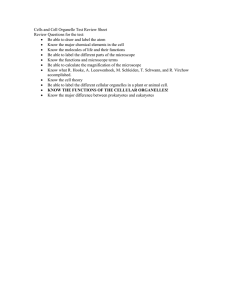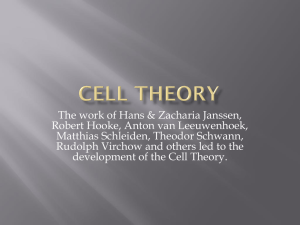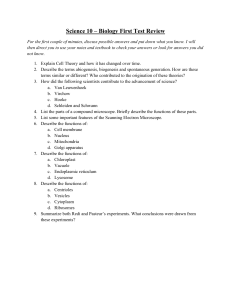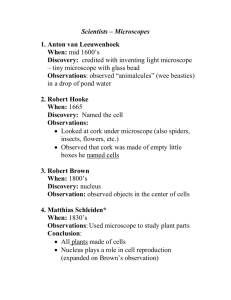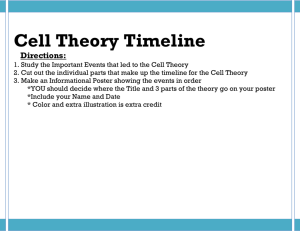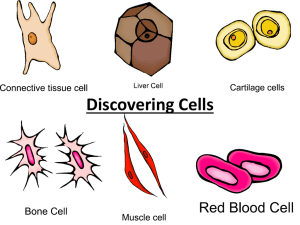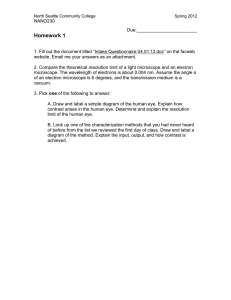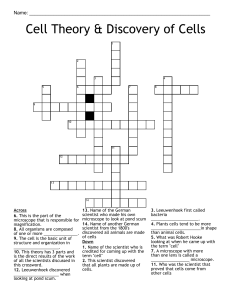The Cell Theory - St. Paul School
advertisement
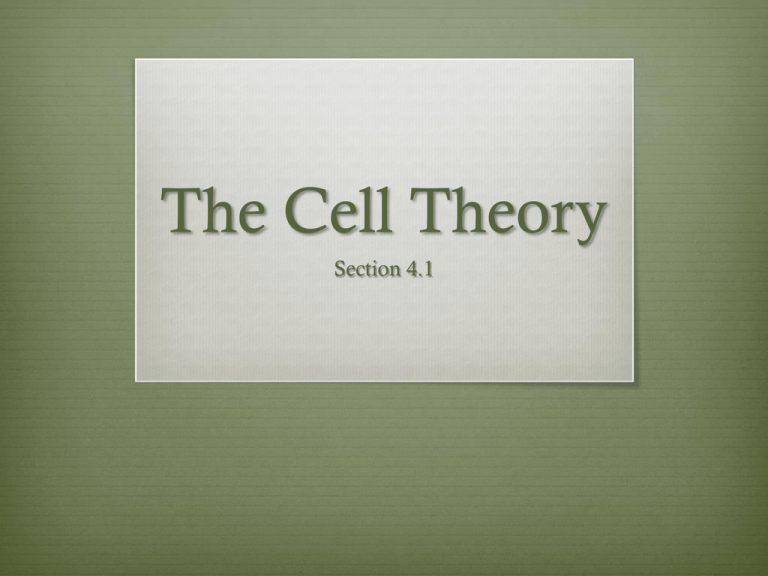
The Cell Theory Section 4.1 What do you know? Where are cells found? How many cells are there in a single human being? What do you think might be inside cells? Living? Are these items living, once living, or nonliving? Autumn leaf Cotton shirt Tulip Steel beam Car Dog String beans Cow How do you know which things are living? Cells The basic unit of structure is the cell. All living things or things that were once living are made up of one or more cells. Cells are difficult to see with the untrained eye. Cell- basic unit of function in all living things. Each cell carries out life processes. Development of the Cell Theory In 1675, a Dutch shopkeeper named Anton van Leeuwenhoek, looked at pond water through a simple microscope. He saw what he called “animalcules” (single-celled organisms) Probably the first person to see cells. Development of the Cell Theory Around the same time, an English scientist and inventor, Robert Hooke, used a crude compound microscope to look at a very thin slice of cork. He saw “a great many little boxes” Why do you think he called them cells? Development of the Cell Theory In the 1830’s a German botanist, Matthias Schleiden, noticed that all the plants he observed under a microscope seemed to be made of tiny units. In 1838, he stated that all plants made up similar units (cells) It was then discovered that cells were present in other living things. Another German scientists, Theodore Schwann, observed animal tissue and stated that cells were the building blocks of both plants and animals. Pointed out that there were many different kinds of cells, each with a different function. In 1858, Rudolf Virchow, stated that all cells are produced only by other living cells. Development of the Cell Theory The cell theory- set of statements about the ideas about the cell. All living things are made up of one or more cells. Cells are the basic units of structure and function in living things. All cells come only from other living things. What have we learned? 1. Which scientist gave us the name “cell”? 2. What are the three parts to the cell theory? 3. Why is a cell considered the smallest thing that can be called living? 4. Cells can be similar to bricks in a building. What other things are like cells? Make a list. For each item, explain how it is similar to a cell.
